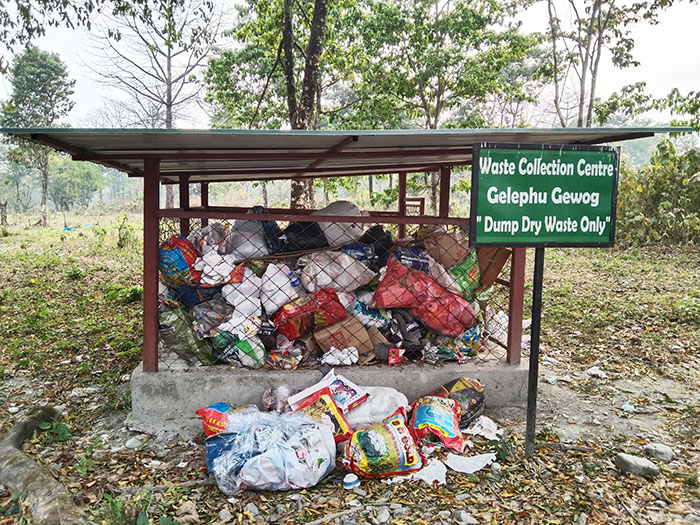Entrepreneurs say the eco-friendly venture is not economically viable
Nima | Gelephu
Managing waste is a major environmental concern in Sarpang.
For example, a person in the rural part of Sarpang generates 0.05kg of waste per day. With around 33,000 people in the villages of Sarpang, waste generated is 1,649kg a day.
The people residing in urban towns generate 1,951kg of waste in a day. Over 10,000 people live in urban areas in Sarpang.
Environment officer, Chimi Dorji, said that the waste generated from a small section of the community and the rise in illegal dumping of waste were among the challenges facing the environment sector in Sarpang.
“Waste is an emerging issue nationwide, but for Sarpang, it’s one of the major environmental issues,” he said.
He added that it was worrying to learn about the amount of waste generated from a population of around 4,000 people in the dzongkhag.
“The maximum portion of waste comprises of food waste, an opportunity for compost business,” said Chimi Dorji.
However, the owner of Bhu-Org farm, Kamal Pradhan, said that it would be difficult for a private individual to run a compost business, as there was only about one percent return from the biodegradable waste.
“It’s not economically viable for a private enterprise to venture into compost business. One tonne of biodegradable waste would produce only 100kg organic fertiliser. It takes more than seven months to ready the compost,” he said.
The firm’s compost plant produces around 250 metric tonnes (MT) of organic fertilisers.
The firm plans to upgrade the compost production to 1,000MT from Jigmeling Industrial Estate.
“We don’t take in municipal waste because our definition of organic fertiliser would be defeated,” said Kamal Pradhan.
He added that there was scope to run a firm that could recycle solid waste produced in the dzongkhag with support from the stakeholders concerned.
Marketing the product is the challenge.
Budhi Man from Pelrithang who operated a waste recycling unit in Gelephu gewog till 2019 said running a waste collection unit was not profitable like that of a scrap business.
“It’s not profitable to operate the business from privately leased land. Segregating the waste is the main problem and the people aren’t aware of managing the waste,” he said.
He added that there was a potential market to run a compost business and almost all the waste could be used with value addition.
“But support from the stakeholders is important to sustain such an initiative,” said Budhi Man.
Chimi Dorji said whatever done so far in the dzongkhag was a patchwork of waste management activities. “We need to mainstream and support the private sector in managing waste for a permanent solution,” he added.
“Semi-urban and rural community waste management plan should be in place so soon,” said the official.


